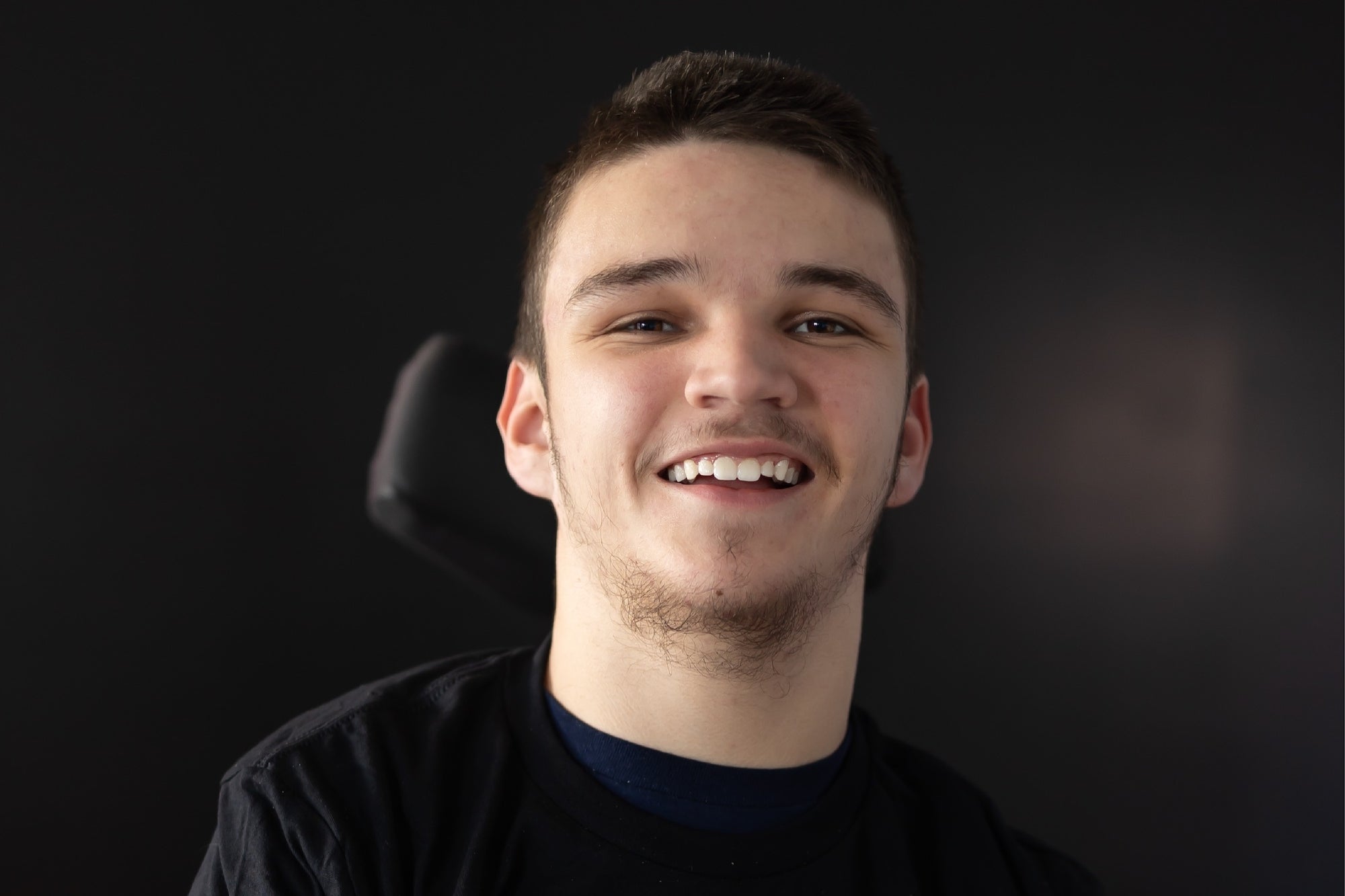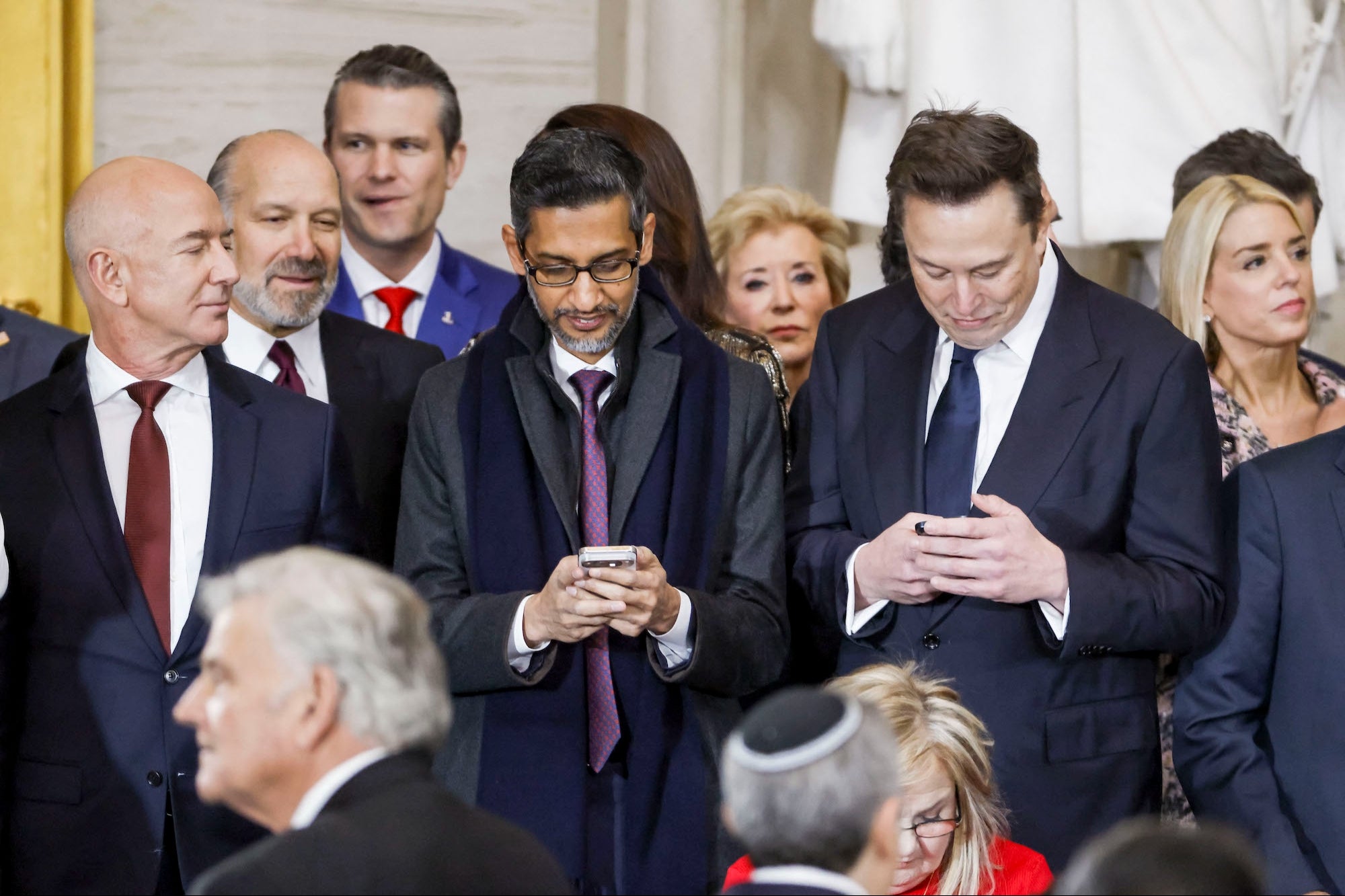Richard Branson The P.T. Barnum Of British Business

Richard Branson
Founder of The Virgin Group
Founded: 1970
"I don't go into ventures to make a fortune. I do it because I'm not satisfied with the way others are doing business."-Richard Branson
He appeared in public dressed in a $10,000 white silk bridal gown. Drove a tank into New York City's Times Square and fired a cannon at the Coca-Cola sign. Rented a boat and sailed the Sex Pistols down the Thames River so they could serenade the House of Commons with "God Save the Queen"-a song the British government had banned from the airwaves. And he's even buzzed Big Ben in an Airbus A340 jet.
Much like P.T. Barnum, the flamboyant 19th century showman he's often compared to, it seems that there's little self-proclaimed "adventure capitalist" and Virgin Group CEO Richard Branson won't do in the name of promotion. But if his over-the-top publicity stunts strike some as eccentric, then the way he runs his multibillion-dollar business must appear completely insane.
Branson has no centralized headquarters-preferring to operate out of his Holland Park home in west London-refuses to hold board meetings, can't operate a computer, keeps his appointments in a paper diary and scribbles ideas on his hand.
Still, this maverick entrepreneur's outrageous escapades have made Virgin one of the best-known and most popular brand names in the world. And his unusual business and management practices have created a $5 billion empire that embraces everything from an international airline to a bridal-wear shop.
Branson began his diverse entrepreneurial career in 1967 when he quit school at the age of 16 to start a magazine. Branson hoped his magazine, simply titled Student, would become a voice for young activists. When the first issue debuted in 1968, the headmaster of Stowe, where Branson had been a student, wrote Branson a rather prophetic note that said: "Congratulations, Branson. I predict you will either go to prison or become a millionaire." Branson would eventually do both.
Even though he filled his publication with articles and interviews from such luminaries as existentialist Jean-Paul Sartre, novelists James Baldwin and Alice Walker, and poet Robert Graves, the magazine never made money and Branson seemed doomed for failure. Then he hit upon the idea of selling records through the mail at discounted prices. Branson ran ads in Student and his mail order record business soon became more lucrative than the magazine. To take full advantage of this newfound market, Branson rented an empty shop above a shoe store, put up a few shelves, recruited the staff of Student as employees, and opened a discount record store. They dubbed the store Virgin, because everyone involved was a complete virgin at business.
With the opening of the Virgin record store, Branson seemed to be on his way. But he hit a major roadblock when, strapped for cash, he concocted a scheme to avoid paying the British sales tax. The scam was quickly uncovered, and Branson was arrested and jailed. He negotiated an out-of-court settlement, agreeing to pay back the taxes over the next three years. Left a little wiser by the experience, Branson set out to turn his loosely run business into a company focused on and ruled by balance sheets.
Branson's next entrepreneurial adventure began in 1973 when he formed Virgin Records and released Mike Oldfield's "Tubular Bells." The haunting instrumental became a worldwide hit and put Virgin Records on the map. But the company really took off in 1977, when, even though he was advised against it, Branson signed the Sex Pistols, who had already been dropped from two other record labels because of their scandalous antics on and off the stage. The Pistols self-destructed shortly afterward, but the fledgling Virgin Records flourished, becoming the world's largest independent record label with a stable of stars that included artists such as the Rolling Stones, Peter Gabriel, UB40, Steve Winwood and Paula Abdul.
By 1983 Branson's empire encompassed more than 50 companies involved in everything from filmmaking to air conditioner cleaning and generating combined sales of more than $17 million. But according to Branson, money is not the driving force behind his varied business endeavors. Instead, his principal motive for expanding into new ventures is that he enjoys the challenge of trying to do something better than other people. And in 1984, Branson embarked on what would prove to be the biggest challenge of his life-Virgin Atlantic airlines.
Branson's colleagues thought he was crazy. Starting a transatlantic airline would mean going up against the behemoth British Airways, which had already thoroughly trounced Freddy Laker when he attempted to enter this highly lucrative market. But Branson was undaunted. He felt the major airlines, especially British Airways, were no longer responsive to their customers' needs, and he became convinced that if he started an airline that made traveling an affordable and enjoyable experience, he could beat them at their own game.
The initial response to Virgin Atlantic was tremendous. The airline became famous for its superior service and lavish amenities, which included in-flight massages, hydrotherapy baths, free ice cream during movies and seat-back video screens in every class. But the early 1990s would prove to be a turbulent era for the upstart airline. Economies were floundering worldwide. The price of airline fuel had more than doubled. And fewer people were traveling abroad due to fear of terrorist attacks. To make matters worse, in 1991, British Airways launched a secret campaign to drive Branson out of business.
By 1992, Virgin Atlantic's financial situation was so shaky that Branson's bankers forced him to sell Virgin Records to Thorn-EMI to raise enough cash to keep the airline flying. The sale generated nearly $1 billion, enough for Branson to pay off the bank and own Virgin Atlantic outright. But Branson was crushed at being forced to sell the music company he loved and vowed never to put himself at the mercy of bank lenders again.
To this end, he developed a new business approach, which he calls "branded venture capital." This remarkable strategy has enabled Branson to launch a patchwork of businesses with minimal investment. The key to this strategy lies in licensing the highly regarded Virgin name. Basically, Branson manages the business and supplies the Virgin name, usually in exchange for a controlling interest, while his wealthy partners put up most of the cash.
As a result of this strategy, Branson now owns or holds interests in more than 200 different companies, including two airlines, Virgin Interactive Entertainment, Virgin Radio, Virgin Studios, Virgin Hotels, Virgin Bridal, Virgin Clubs, Virgin Cola, Virgin Publishing, Virgin Vodka, Virgin Net, the Virgin Megastore chain, V2 (a global record company), a financial planning network, a blimp business, a modeling agency, a life insurance company and the high-speed European railway Eurostar.
And he's not about to stop expanding his empire. Branson's future plans include a shuttle service into space. Why not? As Branson states in a 1997 interview in Forbes magazine, "It's virgin territory."
The Gospel According To Richard
- On management: "If you take care of your employees, your employees will take care of your customers and your customers will take care of your shareholders."
- On his flamboyant publicity stunts: "If you are willing to make a fool of yourself and make people smile-as long as you do it with a sense of fun-you can get away with it."
- On risk-taking: "You fail if you don't try. If you try and you fail, yes, you'll have a few articles saying you've failed at something. But if you look at the history of American entrepreneurs, one thing I do know about them: An awful lot of them have tried and failed in the past and gone on to great things."
- On his ability to succeed at so many different businesses: "I immerse myself in getting the businesses set up and am very involved the first three or four months, get good people to run them, give them a stake in the company and a lot of freedom, and then step back and move on to the next."
- On the future of Virgin: "We're a company that likes to take on the giants. In too many businesses these giants have had things their own way. We're going to have a lot of fun competing with them."
Just Call Him "Evel"
Richard Branson thrives on challenges. A true adventurer in every sense of the word, he hasn't limited his risk-taking to business ventures only. More than once he's embarked on death-defying personal challenges that have nearly cost him his life. In 1985, he had to be rescued from a roiling ocean after his racing boat, the Virgin Challenger, was swamped. Undaunted, the very next year he crossed the Atlantic in a similar boat, the Virgin Challenger II, in the fastest-ever recorded time.
For his next challenge, Branson took to the air and became the first man to cross the Atlantic in a hot air balloon in 1987. As if that weren't enough, at the time, his balloon, the Virgin Atlantic Flyer, was the largest ever flown (2.3 million cubic feet) and reached record-setting speeds in excess of 130 mph. Both those records stood until 1991, when Branson flew another Virgin Atlantic Flyer 6,700 miles across the Pacific from Japan to Arctic Canada, again breaking all existing records, hitting speeds up to 245 mph, in a balloon of 2.6 million cubic feet. Since then he has made three unsuccessful attempts to become the first man to fly around the world in the balloon.








